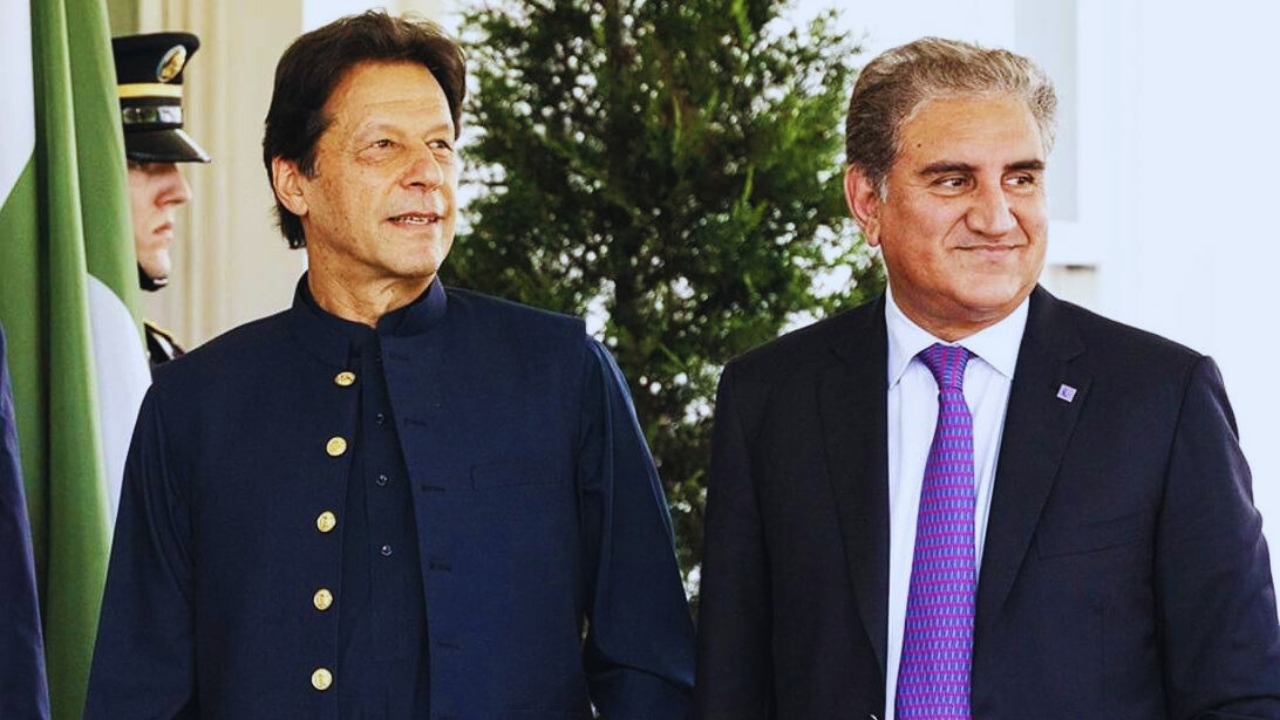The federal government lodged an appeal before the Supreme Court against the acquittals of PTI founder Imran Khan and former foreign minister Shah Mahmood Qureshi in the cypher case.
The cypher case is a diplomatic paper that the charge sheet of the Federal Investigation Agency (FIA) claims was not returned by the former Prime Minister Imran, who consistently maintained that the document included a threat from the United States to overthrow his government.
In January, a specialised court, constituted under the Official Secrets Act, sentenced both Imran and Qureshi to 10 years in prison. This decision was made by Judge Abual Hasnat Zulqarnain, who appointed a state lawyer to represent them.
Last Monday, the Chief Justice of the Islamabad High Court (IHC), Aamer Farooq, and Justice Miangul Hassan Aurangzeb, freed the two individuals. This decision was made after allowing the pleas of the former prime minister and diplomat, who were previously convicted in the case.
The government criticised the ruling, arguing that the IHC did not analyse the issue in the context of ‘national security’. During a news conference, Barrister Aqeel Malik, the Prime Minister’s spokesperson for legal affairs, announced that the prosecution would make a decision to launch an appeal against the verdict of the Islamabad High Court (IHC).
A petition was filed today with the supreme court by the interior secretary, challenging the verdict. The petition requested the issuance of leave to appeal and for the plea to be converted into an appeal in the “best interest of justice.”
The petition contended that the IHC order was “perverse, arbitrary, and inconsistent with the evidence on hand,” and so should be overturned.
The argument put forth is that the Official Secrets Act (OSA), 1923 does not allow for the option of appealing against the decision made by the special court judge. Additionally, it is claimed that the IHC did not fully understand that it does not have the authority to establish rights that are not granted by the Constitution or a law that has been properly enacted.
The petition argued that the act did not explicitly provide that the provisions of the Pakistan Criminal Law (Amendment) Act, 1958, might be used to file an appeal.
The argument asserts that if the legislature has not explicitly included something in the language of the law, the court is not authorised to interpret the law beyond its jurisdiction. Doing so would exceed the court’s powers under the constitution and result in an order that lacks jurisdiction.
According to the statement, the special law would take precedence over the ordinary law, meaning that the criminal procedure code would not apply to anyone being tried for violations under the OSA.
The respondents displayed uncooperative behaviour throughout the trial and actively attempted to prolong the proceedings. The trial court’s record serves as evidence that the respondents filed and the trial court heard and decided 65 miscellaneous applications.
“The proceedings were repeatedly postponed at the request of the respondents or their legal representatives.” The witnesses were present in court, but the defence counsels did not do their cross-examination. The knowledgeable trial court appointed the defence counsels at the state’s expense, and they successfully concluded the trial. The petition stated that the respondents attempted to undermine the pursuit of justice through prolonged delays, and emphasised that the IHC did not take these factors into account.
The argument put out states that it is an established legal concept that if a court determines that a trial was not conducted properly, the only recourse available under the law is to send the case back to the trial court for a fair opportunity.
The prosecution presented compelling evidence in favour of its case, and the admission made by the accused was enough to conclusively prove the case without any doubt.
The prosecution has presented documentary evidence, supported by forensic analysis, which is reliable and inspires confidence. This evidence was not refuted during cross-examination. However, the honourable division bench of IHC did not acknowledge this evidence when acquitting the respondents. Therefore, the judgement in question is not legally defensible.
The impugned judgment/short order does not provide any basis for the respondent’s acquittal. Furthermore, it does not acknowledge that the prosecution has successfully proven its case beyond any question.
The plea continued by stating that the Islamabad High Court (IHC) did not properly consider the available evidence and the admission of the accused when acquitting the respondents. Therefore, the plea argues that the judgement is not legally valid.


